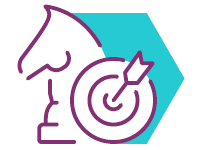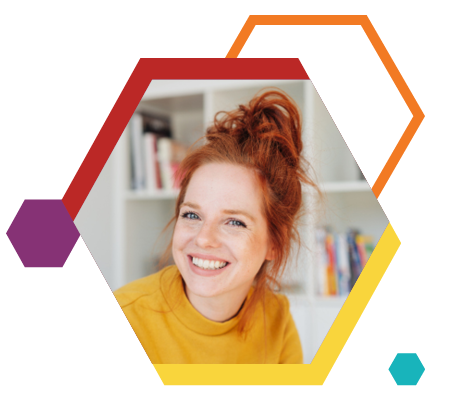The Tax-Free First Home Savings Account
A better, brighter, tax-free way to save for a home.
Spark Immediate Tax Savings
Keep More, Save More
Even withdrawals are tax-free!
Boost Returns with Flexible Investment Choice
THE NITTY-GRITTY: everything you need to know about FHSAs
- a Canadian resident
- at least 18 years old
- a first-time homebuyer*
Like with an RRSP, your annual FHSA contributions can be claimed as an income tax deduction for contributions made in that year. However, unlike an RRSP, your FHSA contributions made during the first 60 days of the calendar year cannot be used for tax deductions for the previous year. Unused contribution room can carry forward to the following year up to a maximum of $8,000.
Just like with other registered plans, you can have more than one FHSA, but the total combined amount you can contribute to all your accounts cannot exceed your annual and lifetime FHSA contribution limits.
Like TFSAs and RRSPs, a tax on overcontributions to an FHSA would apply for each month (or part-month) that the account is over the limit. The tax applies at the rate of 1% of the highest amount of the excess that existed in that month.
- You must be a first-time homebuyer
- You must be a Canadian resident
- You must have a written agreement to buy or build a qualifying home (located in Canada) before October 1 of the year following the year of withdrawal
- Your new home must be your principal place of residence within one year of buying/building it
- Once you’ve made a non-taxable withdrawal from your FHSA to purchase a home, you must close your FHSA within a year from that date, and would not be eligible to open another FHSA.
If you don't use your FHSA to buy a home, you can transfer the funds to an RRSP or RRIF account. The transfer would not impact your RRSP’s available contribution room.
You can also simply withdraw the funds from your FHSA, but the amount would be subject to withholding tax and be included as income on your tax return.
HBP withdrawals are borrowed from your RRSP (interest-free) and must be paid back within 15 years, whereas qualifying FHSA withdrawals are tax-free and do not need to be repaid.
If you do not buy a home within the 15-year FHSA limit, the funds can be transferred to your RRSP tax-free before the end of the 15th year, where they can later be withdrawn under the HBP.
Because a transfer of funds from an FHSA to an RRSP will not reduce your available RRSP contribution room, you can effectively create more RRSP room by starting to contribute to your FHSA.
The same prohibited investment rules and non-qualified investment rules applicable to other registered accounts will apply to the FHSA. These rules disallow non-arm’s length investments and investments in assets such as land, shares of private corporations and general partnership units.
Unused funds in the FHSA can be transferred to an RRSP or RRIF on a tax-free basis before the FHSA closure or withdrawn, but the withdrawal will be taxable.
If a withdrawal was made to purchase a qualifying home, unused funds can be transferred to an RRSP or RRIF on a tax-free basis until December 31 of the year following the year of the qualifying withdrawal.
In the event of a marriage or common-law breakdown, you may transfer funds from your FHSA to your former spouse’s FHSA, RRSP or RRIF. This will not reinstate an FHSA contribution room for you and would not use any contribution room of your former spouse. If your spouse has overcontributed, the amount eligible for transfer will be reduced.
If the beneficiary is anyone other than a spouse, the funds will need to be withdrawn immediately following death and paid to the beneficiary. Amounts paid will be included in the beneficiary’s income and subject to withholding tax.
Non-qualifying withdrawals as a non-resident are subject to withholding tax.
Investing tailored to fit you.
 Personal Advice
Personal Advice
Take advantage of expert support to plan, monitor, and manage every aspect of your investment strategy.
 Do-it-yourself investing
Do-it-yourself investing
Invest for yourself anytime, anywhere with an award-winning trading platform: Qtrade Direct Investing®.
 Digital, or Robo, Advice
Digital, or Robo, Advice
Automate your investing with a simple digital service you don’t need to monitor or manage: Qtrade Guided Portfolios®.
 Managed Assets Solutions
Managed Assets Solutions
Premium wealth solutions designed with you in mind. Exclusive to Aviso Wealth investors.
Boost your financial know-how
Check out Enrich - a free, award-winning financial education platform.

The Power of Bi-Weekly Mortgage Payments
Unlock the door and start your financial well-being journey
You've always dreamed of owning your own home, but saving enough for a down payment can seem like a daunting task. Where do you find the extra money to go towards savings? That's where an award-winning financial educational platform can come in handy! And by gosh, you're in luck because we happen to have one called Enrich. If you're ready to start turning your dreams into reality click below and learn how to start saving for your first home.

 Search
Search







 www.google.com
www.google.com

